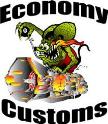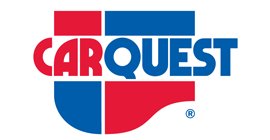Archive for March 2018Cruisin' on Down Main StreetPosted March 27, 2018 8:39 AMWhen automakers first came out with cruise control, it was a real luxury item. The older cruise controls used a mechanical vacuum system but it worked. Well, some of the time. Now days, cruise control is all electronic, thanks to computers. It's reliable and a real convenience on long trips. Cruise control is offered on most vehicles and standard on a lot of them. Because it's electronic, when it breaks, it's usually some electronic component. Your vehicle's cruise can be the victim of a blown fuse. Or your vehicle's speed sensor, which—not surprisingly—measures your vehicle's speed, can also stop working. And that will cause your cruise to stop cruising. Vehicles with cruise control also have a built-in feature that, when the brakes are applied, turns off the cruise. With electronic cruise control, that happens thanks to the brake pedal switch, and if a problem develops in that switch, the cruise might not work. The newest cruise control is called "adaptive." What that means is that it will maintain your vehicle's speed as well as the distance between you and the vehicle ahead of you. That means if a car ahead of you slows down, your vehicle will slow down to the same speed and even stop if the car ahead stops. Pretty cool, right? As you can imagine, adaptive cruise control is more sophisticated and has many more components than standard cruise. The systems vary from manufacturer to manufacturer, but they use on-board radar units and cameras to calculate what your vehicle should do to maintain a safe distance and speed. Finally, there are still some of the older style cruise controls out on the roads. They'll stop working when the vacuum actuator develops a problem, a vacuum hose starts leaking or breaks or the cable between the actuator and the throttle kinks, breaks, seizes up or becomes detached. If your cruise control isn't working, your service repair facility will be able to determine what kind your vehicle has and what it will take to fix it. Good news for the cruise blues. Economy Transmission and Auto Repair
201 Terryville Road
Bristol, Connecticut 06010
(860) 589-1255
The Economy Transmission and Auto Repair Guide to Saving Fuel: Get Rid of Dirty OilPosted March 19, 2018 2:30 AMA lot of us drivers are asking ourselves the same question lately: how can we save on fuel? Bristol area residents are all cutting back, if not in fuel consumption, then in other areas of our lives. Preventive Maintenance Preventive maintenance is an important way people in Bristol can conserve fuel by improving fuel economy. And one of the easiest and most effective ways to do that is to keep the oil in our vehicle adequate and clean. Responsible Car Care Dirty oil grits up your engine, which also increases friction. So even if there's enough oil, you're still getting that extra drag that reduces your fuel economy. That's why your owner's manual recommends getting your oil changed regularly. It's good auto advice. Economy Transmission and Auto Repair Line Them Up: Wheel Alignment Service at Economy Transmission and Auto RepairPosted March 13, 2018 3:11 AMHello Bristol! Let's talk about alignment. One of the most important parts of preventive maintenance for your vehicle is keeping the wheels in alignment. Poor alignment causes your tires to wear unevenly, which can significantly reduce their lifespan. This means you will have to replace them more often, which can be costly for drivers in Bristol. Economy Transmission and Auto Repair To Fix or Not To Fix: That Is the Question.Posted March 7, 2018 5:10 AMNo matter what vehicle you drive, when certain things break, you have to make a decision. Should I get it fixed now, later or never? Air conditioning is one of those things. You can certainly live without air conditioning, but it sure is nice to have on a sweltering day. Let's say your air conditioning breaks in the fall and you live in a climate where it gets quite cold in the winter. Should you get it fixed now, wait until spring since it won't get warm until then or maybe not get it fixed at all? That can be a tough decision. There are several reasons air conditioning in vehicles break. One is fairly simple: It could be an electrical problem, perhaps a relay or solenoid is not turning on the system. It's also a fairly inexpensive repair and doesn't require hours of labor. Or, the problem is that the coolant has leaked out. Your service facility can find the leak and replace the parts that are leaking. With a refrigerant recharge, you're back in business. The repair costs vary, depending on the reason for the leak. When air conditioning malfunctions involve a compressor, evaporator or condenser, the costs can be significant since parts and labor add up. Depending on the age and value of your vehicle, you may choose to simply roll down the windows and live with it. Keep in mind that many vehicles in cold climates use air conditioning in winter. Many vehicles automatically turn on the A/C when you use the defroster. The A/C dries the heated air it blows on the windshield and side windows to eliminate fogging more quickly. Outside conditions such as snow and ice can severely hamper visibility. Add to that fogging on the inside and it can present very challenging conditions for the driver. In order for all systems to be functioning optimally, a vehicle owner might feel it's worth it for safety reasons to get a broken air conditioner fixed, even if it is done right before the approach of cold weather. Discuss these options with your service advisor so you can make the best decision for your situation. Economy Transmission and Auto Repair
201 Terryville Road
Bristol, Connecticut 06010
(860) 589-1255
| ||
SearchArchiveFebruary 2010 (2)March 2010 (4) April 2010 (3) May 2010 (4) June 2010 (4) July 2010 (4) August 2010 (4) September 2010 (5) October 2010 (1) November 2010 (5) December 2010 (5) January 2011 (4) February 2011 (4) March 2011 (5) April 2011 (4) May 2011 (4) June 2011 (5) July 2011 (4) August 2011 (21) September 2011 (4) October 2011 (4) November 2011 (5) December 2011 (4) January 2012 (5) February 2012 (4) March 2012 (4) April 2012 (4) May 2012 (2) June 2012 (3) July 2012 (1) August 2012 (1) November 2012 (1) December 2012 (2) March 2013 (1) April 2013 (3) May 2013 (2) October 2013 (5) November 2013 (2) January 2014 (2) February 2014 (3) March 2014 (2) July 2014 (3) August 2014 (7) September 2014 (4) October 2014 (5) November 2014 (4) December 2014 (4) January 2015 (5) February 2015 (4) March 2015 (4) April 2015 (5) May 2015 (2) June 2015 (6) July 2015 (2) September 2015 (2) October 2015 (5) November 2015 (3) December 2015 (3) February 2016 (1) March 2016 (5) April 2016 (4) May 2016 (5) June 2016 (4) July 2016 (5) August 2016 (4) September 2016 (4) October 2016 (5) November 2016 (4) December 2016 (4) January 2017 (5) February 2017 (4) March 2017 (4) April 2017 (4) May 2017 (4) June 2017 (5) July 2017 (5) August 2017 (4) September 2017 (3) October 2017 (5) November 2017 (4) December 2017 (3) January 2018 (5) February 2018 (4) March 2018 (4) April 2018 (5) May 2018 (4) June 2018 (4) July 2018 (5) August 2018 (4) September 2018 (5) October 2018 (4) November 2018 (4) December 2018 (5) January 2019 (4) March 2019 (4) May 2019 (2) June 2019 (5) July 2019 (2) August 2019 (2) September 2019 (4) October 2019 (5) November 2019 (4) December 2019 (5) January 2020 (5) February 2020 (4) March 2020 (5) April 2020 (1) May 2020 (2) July 2020 (2) August 2020 (5) September 2020 (4) October 2020 (4) November 2020 (5) December 2020 (4) January 2021 (6) February 2021 (4) March 2021 (4) April 2021 (4) May 2021 (5) June 2021 (4) July 2021 (4) August 2021 (5) September 2021 (4) October 2021 (5) November 2021 (4) December 2021 (4) January 2022 (6) February 2022 (4) March 2022 (4) April 2022 (4) May 2022 (5) June 2022 (4) July 2022 (3) September 2022 (4) October 2022 (5) November 2022 (4) December 2022 (4) January 2023 (5) February 2023 (4) March 2023 (4) April 2023 (5) May 2023 (4) June 2023 (4) July 2023 (5) August 2023 (4) September 2023 (4) October 2023 (1) January 2024 (1) February 2024 (4) March 2024 (1) | CategoriesAir Conditioning (17)Alignment (17)Alternator (6)Auto Safety (6)Automotive News (8)Battery (20)Brake Service (4)Brakes (22)Cabin Air Filter (8)Check Engine Light (6)Cooling System (19)Customer Detective Work (1)Dashboard (3)Diagnostics (5)Diesel Maintenance (1)Differential Service (4)Drive Train (9)Emergency Items (1)Engine Air Filter (2)Exhaust (12)Fluids (17)Fuel Economy (10)Fuel Pump (1)Fuel Saving Tip: Slow Down (2)Fuel System (47)Headlamps (6)Inspection (11)Keys to a long lasting vehicle (4)Maintenance (53)Monitoring System (3)Oil Change (7)Older Vehicles (4)Parts (7)PCV Valve (2)Safe Driving (1)Safety (6)Serpentine Belt (6)Service Intervals (9)Service Standards (13)Shocks & Struts (9)Shocks and Struts (1)Spark Plugs (2)Steering (15)Suspension (3)Timing Belt (6)Tire Rotation and Balancing (3)Tires (10)Tires and Wheels (40)TPMS (3)Transfer Case Service (1)Transmission (11)Trip Inspection (4)Warranty (2)Water Pump (1)What Customers Should Know (81)Wheel Bearings (1)Windshield Wipers (9)Winter Prep (7)Winter Tires (1) | |








